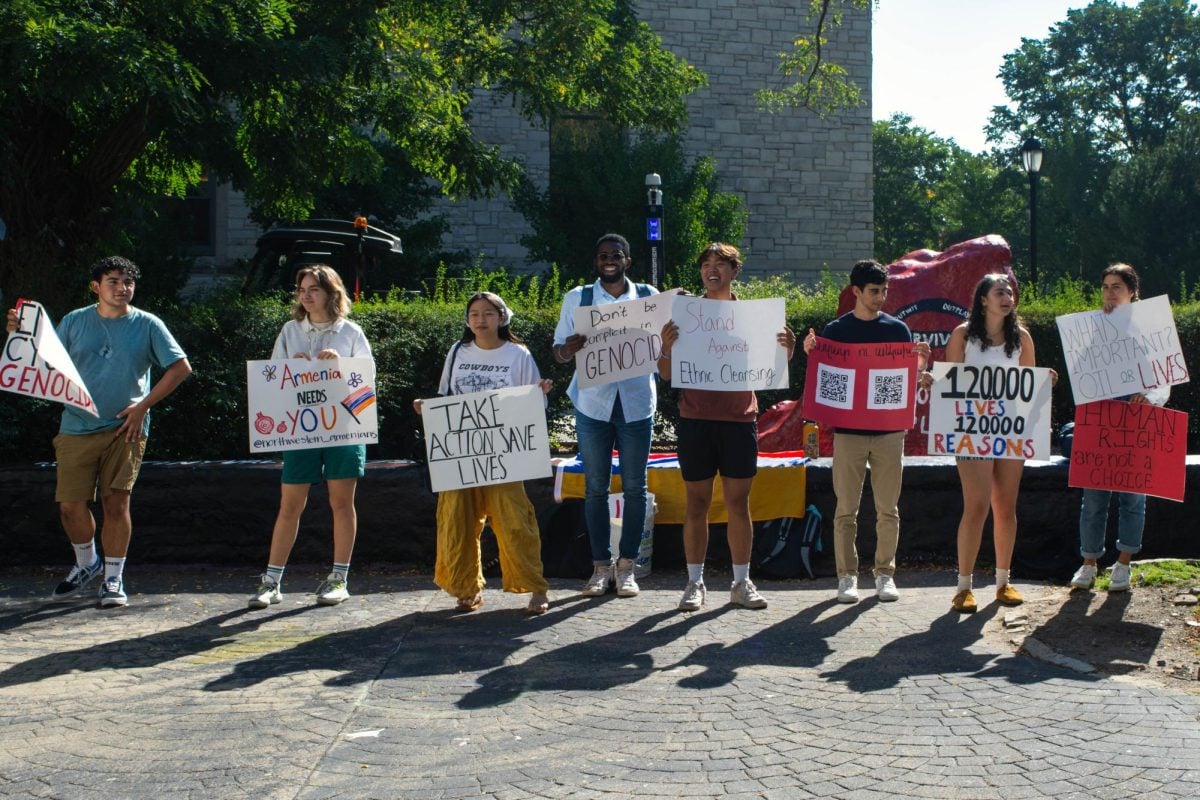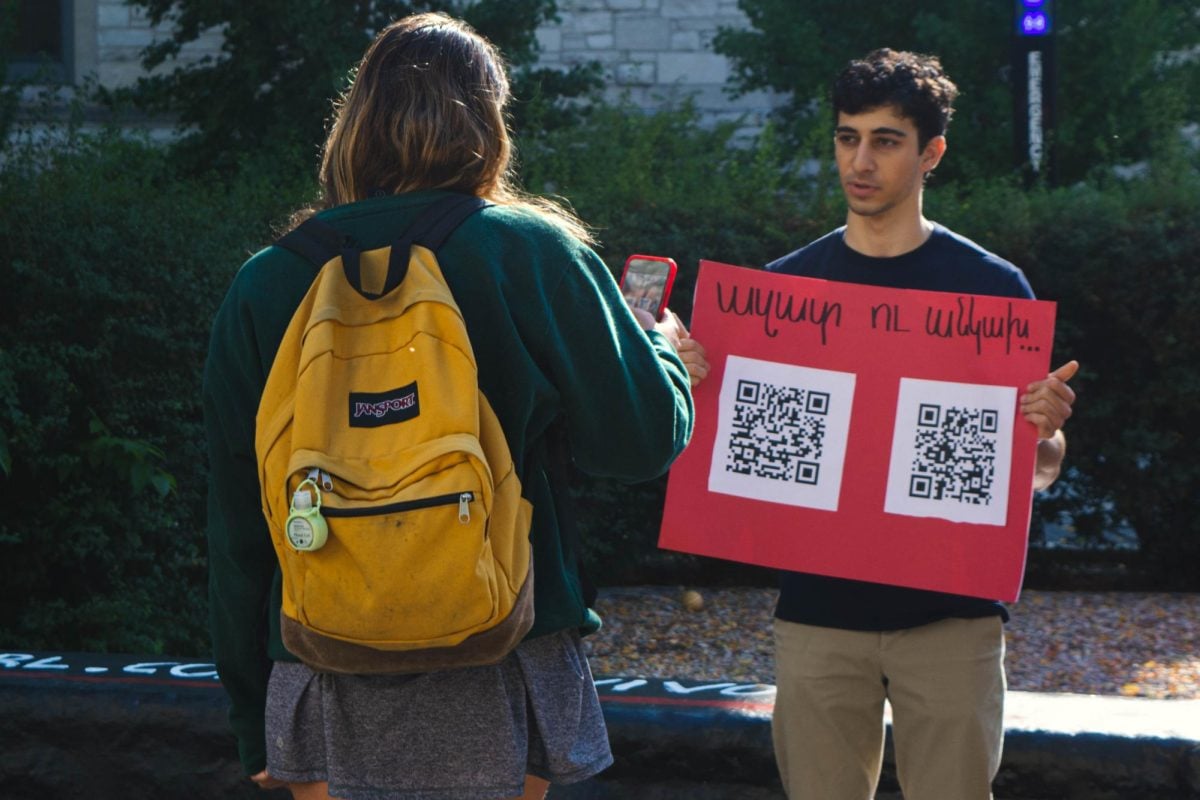Northwestern’s Armenian Student Association gathered Monday morning in front of The Rock to protest a military campaign by Azerbaijani forces in the contested Nagorno-Karabakh enclave, calling for student awareness of the issue and asking for a statement from the University.
Ethnic Armenian authorities in the region surrendered after Azerbaijan launched a large-scale, 24-hour attack on Sept. 19. Azerbaijan’s defense ministry claimed it was an “anti-terrorist” operation.
Nagorno-Karabakh, which is internationally recognized as Azerbaijani territory, has maintained 30 years of de-facto autonomy under the separatist Republic of Artsakh. It has a majority-ethnic Armenian population of about 120,000.
“They’re trying to ethnically cleanse Armenians from their indigenous lands,” Weinberg sophomore and ASA member Tigran Bantikyan said. “They’ve lived there for millennia. They have millennia worth of cultural heritage there.”
As of Thursday, over 100,000 people — more than 80% of the Nagorno-Karabakh’s population — have fled to Armenia, according to the United Nations.
Weinberg sophomore and ASA member Sarine Meguerditchian said she feels isolated on campus due to a lack of awareness of the crisis from non-Armenian members of the NU community.
“This only started making mainstream news last week, but it’s been an ongoing issue for months,” Meguerditchian said.
Azerbaijani officials have denied accusations of ethnic cleansing, claiming they are not forcing residents to leave and that they plan to peacefully reintegrate the region and guarantee rights for ethnic Armenians in a pluralist Azerbaijani state.
However, many residents of Nagorno-Karabakh feel they have no choice but to leave after a blockade started by Azerbaijani government-backed “environmental activists” in December. Residents were deprived of food, fuel and medicine, resulting in malnutrition and other serious health issues, including miscarriages, according to various reports.
SESP sophomore Kiran Bhat, who attended the protest, said she has seen “just a sliver” of how these events have affected Meguerditchian, who is her close friend.
“I think everyone, all students at Northwestern, even if they don’t feel like they understand the issue that much, should be willing to learn,” Bhat said.
Organizers and supporters held up signs that read “End the Cycle of Genocide” and “120,000 Lives, 120,000 Reasons,” and asked passersby to scan two QR codes.
The first QR code prompts an email to University officials calling for the school to release a statement condemning Azerbaijani aggression and expressing solidarity with the people of Nagorno-Karabakh.
Other requests include that the University divest from any companies with ties to Azerbaijan’s military and industrial sector, provide support to Armenian refugees in the form of “further study” at NU and invite Armenian experts to campus to speak about the crisis.
The second QR code links to a message to the U.S. House of Representatives, asking the government to provide humanitarian aid to Armenian refugees while sanctioning and ending military assistance to Azerbaijan.
A letter from President Joe Biden to Armenian Prime Minister Nikol Pashinyan expressed support for the pursuit of peace in Nagorno-Karabakh but did not explicitly condemn Azerbaijan’s actions. At a press conference in Kornidzor, Armenia, U.S. envoy Samantha Power said she was aware of “very troubling reports of violence against civilians” in Nagorno-Karabakh but declined to use the term “ethnic cleansing.”
Bienen-Weinberg freshman and ASA member Ari Tujian said the primary purpose of the protest is to spread awareness and allow students to support the cause in a small way.
“Not everyone has to give so much of their time or donate money,” Tujian said. “But just doing something small, like sending an email, shows solidarity.”
Email: joyceli2025@u.northwestern.edu
Twitter: @joyycee_li
Related Stories
— Armenian Student Association organizes to support Armenia
— ‘A solid and vibrant community’: Newly approved Armenian Student Association joins campus
— Voices for change: A non-comprehensive guide to NU’s activist landscape








